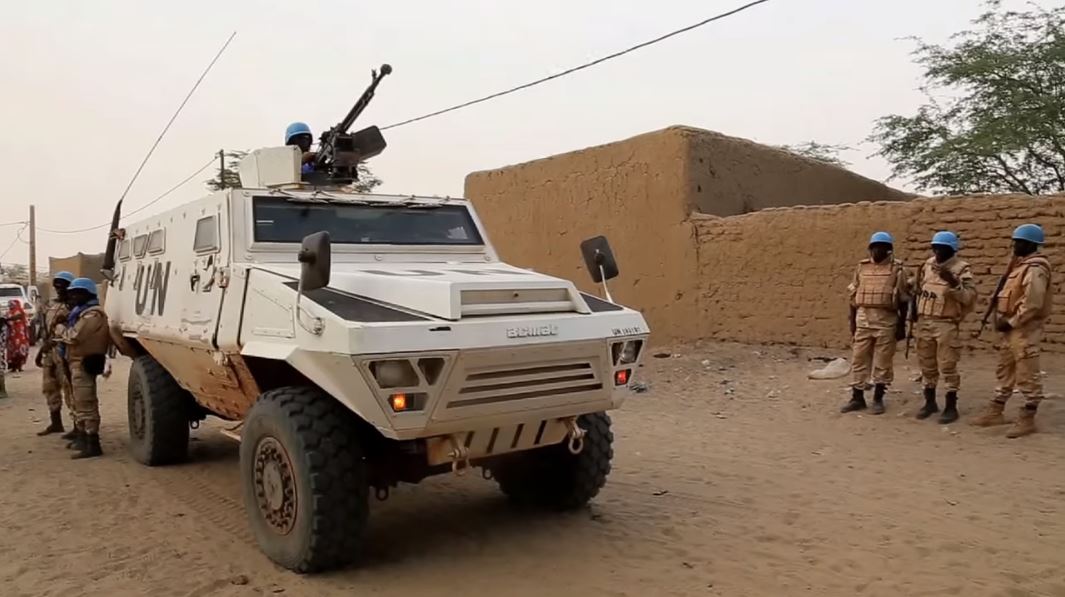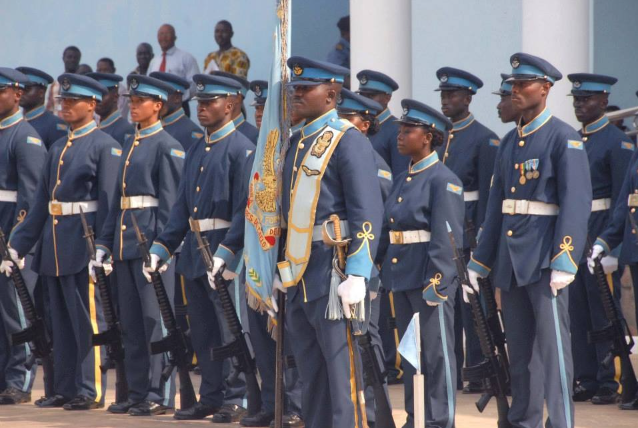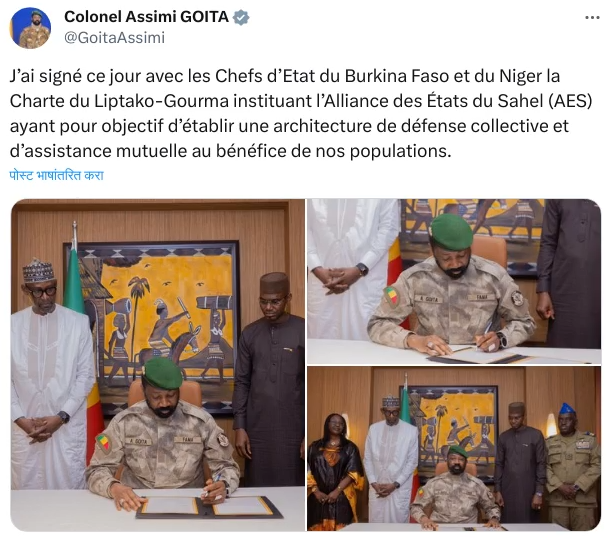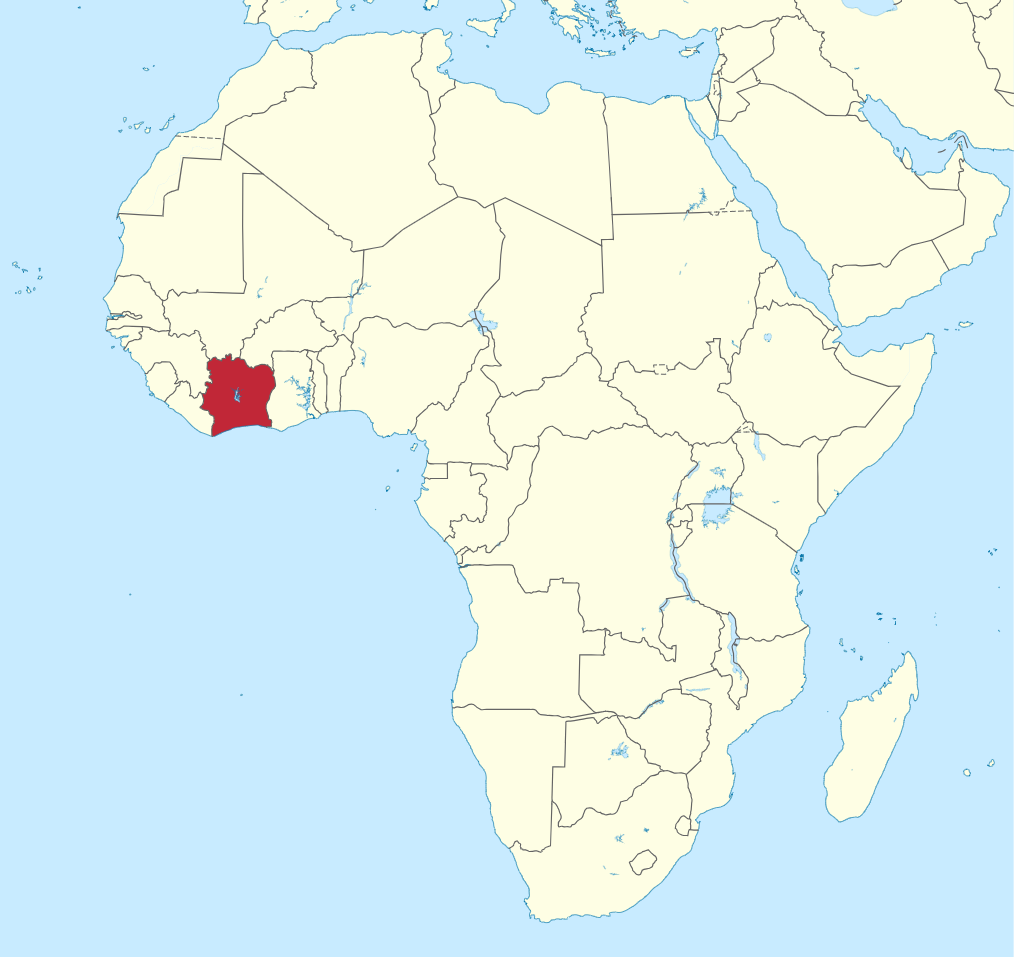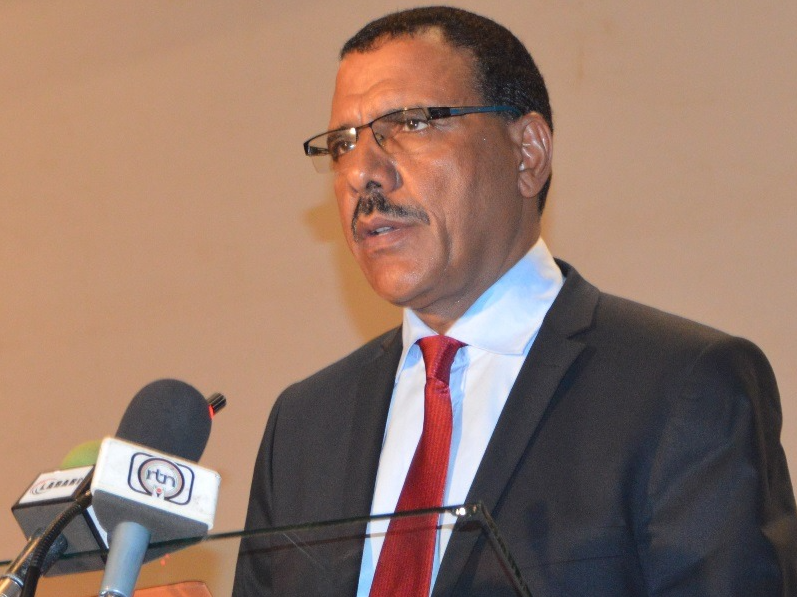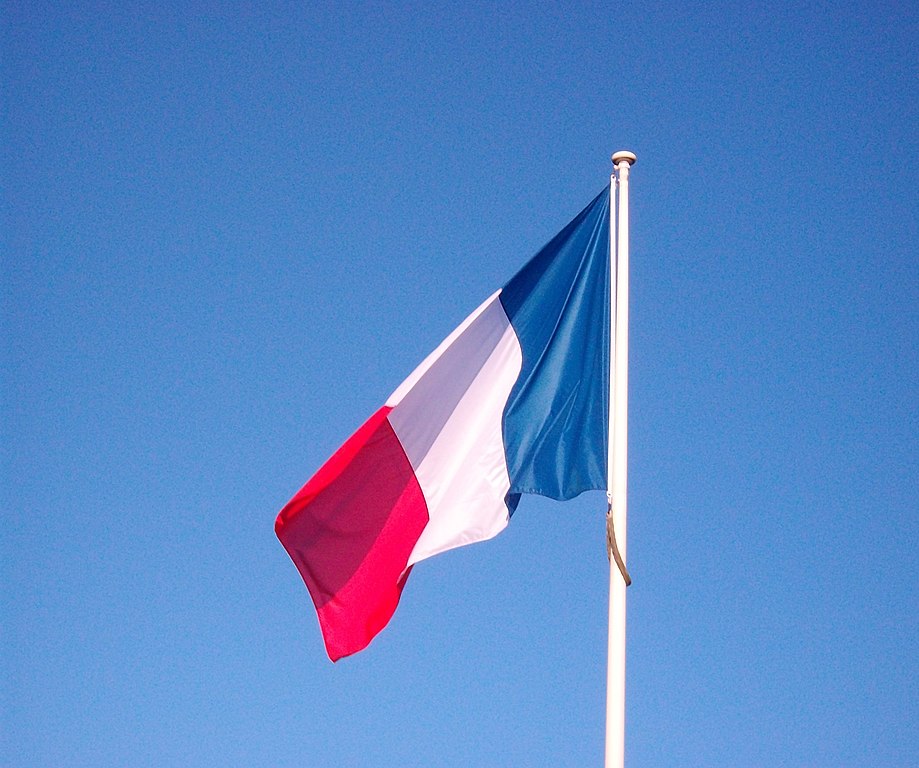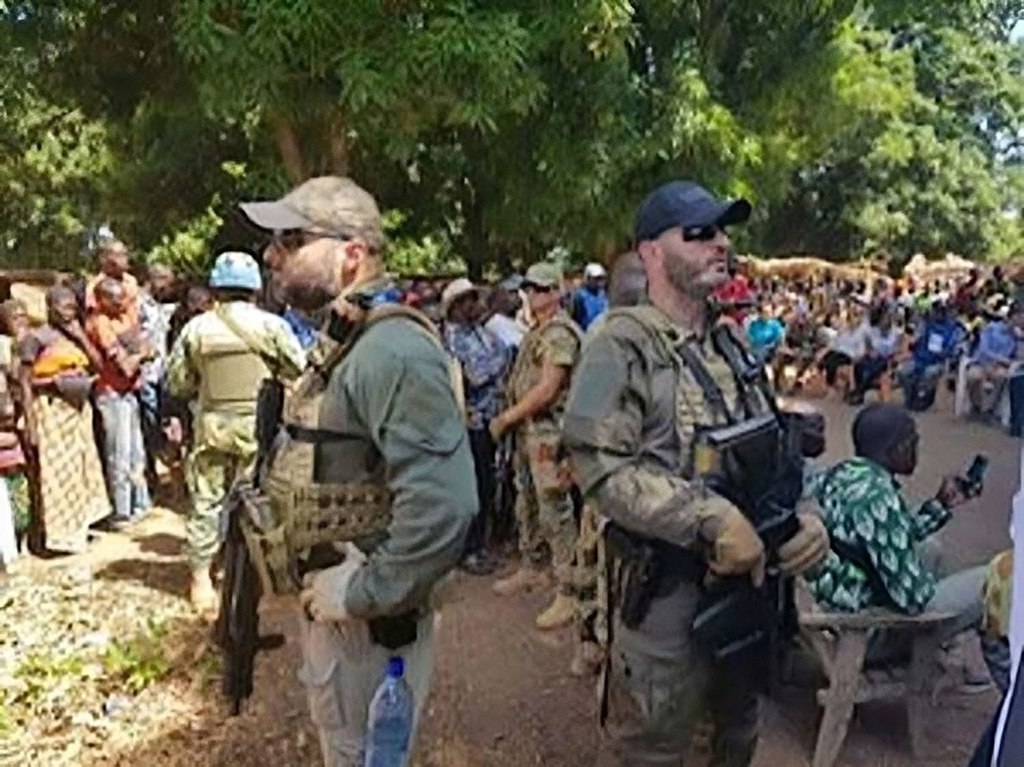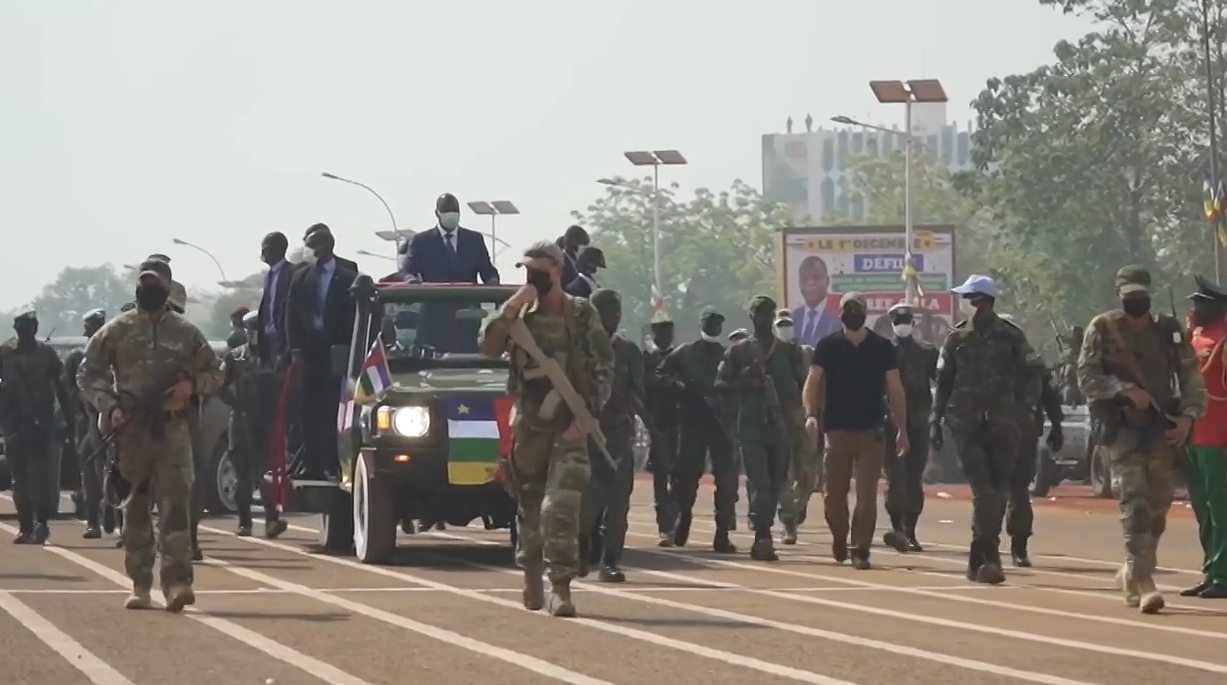
Russian mercenaries provide security for convoy with president of the Central African Republic
“The future Russian Army “Africa corps” is presented by certain Telegram channels as intended to replace Wagner.”
Russia’s Wagner Group became heavily involved in Africa in the years before the death of its founder Yevgeny Prigozhin in an airplane crash in August 2023. The mercenary fighter company deployed its troops primarily to West African countries where France was the security guarantor but had become ostracized by military juntas and authoritarian regimes, such as in Mali, Burkina Faso, Central African Republic, and Sudan.[i] Wagner, in turn, became a key means for Russia to exert influence on the leadership of those countries, which often resulted in Russia being granted special concessions, such as access to resources. However, the Wagner brand name has fallen out of favor with the Kremlin for African operations following Prigozhin’s rebellion against Russian leadership. Yet, the benefit for Russia of having mercenary military formations in Africa still exists. As a result, Russia may replace Wagner with a new, but similarly purposed, “Africa Corps.”
The excerpted French-language article on the website of Radio France Internationale highlighted the visit in December 2023 of Russian Deputy Minister of Defense Evkourov (often spelled Yevkurov) to Niger, where the two countries agreed to strengthen military cooperation.[ii] The was significant because it was the first time a Russian delegation visited Niger since the 2023 coup and demonstrated Russia’s endorsement of Niger’s new military junta, whereas Western countries criticized the coup. Additionally, only one month after the coup, the new junta in Niger requested from Russia Wagner’s protection of the junta from internal and external threats, including a potential military intervention by the Economic Community of West African States (See Jason Warner, “West African States Split On Potential Intervention In Niger,” OE Watch, Issue # 08, 2023, https://fmso.tradoc.army.mil/2023/west-african-states-split-on-potential-intervention-in-niger/). Evkourov’s visit solidifies the new partnership between Russia and Niger, with Wagner—or the new “Africa Corps”— as the vehicle for Russian influence. The article noted that, based on an analysis of Telegram social media channels, “Africa Corps,” like Wagner, would welcome mercenaries. Indeed, the offer of a relatively high salary, health insurance with free medical care, and life insurance, all under the supervision of Evkourov, would motivate mercenaries to join. Such inducements attract, in particular, Russian Army veterans whose professional skill set and sense of adventure is otherwise not compatible with civilian life. Further, the article indicates Russian military intelligence and businessmen close to Vladimir Putin support “Africa Corps.” The similarities between Wagner and “Africa Corps” strongly suggest the latter is a continuation of the former under different branding.
Sources:
“Russie: Moscou prépare un «corps militaire africain» pour prendre la suite de Wagner (Russia: Moscow is preparing an “African military corps” to replace Wagner),” Radio France Internationale, (French state-owned radio news website reporting on international affairs), 5 December 2023. rfi.fr/fr/afrique/20231205-russie-moscou-prépare-un-corps-militaire-africain-pour-prendre-la-suite-de-wagner
A Russian delegation led by the Deputy Minister of Defense is in Niamey. This is the first official visit by a member of the Russian government to this country since the July 26 coup which broke diplomatic relations between Niger and its international partners. The delegation led by the Russian Deputy Minister of Defense, Colonel-General Younous-bek Bamatguireevich Evkourov, was received by the head of the Nigerien military regime, General Abdourahamane Tiani. At the end of the meeting, the parties continued “to sign documents to strengthen military cooperation between the Republic of Niger and the Russian FederationThe future Russian Army “African corps” is presented by certain Telegram channels as intended to replace Wagner. Former mercenaries would be welcome. The conditions include a high salary of nearly 3,000 euros, free medical care, and life and health insurance, all under the supervision of Deputy Defense Minister Yunous-bek Bamatguireevich Evkourov. Other sources suggest that the unit receives direct patronage from Russian military intelligence, under the leadership of a businessman close to the president… This last scenario would be very similar to that applied to Wagner
Notes:
[i] In the final week of December 2023, the last remaining 1,500 French troops withdrew from Niger. In addition, Niger previously vowed to stop selling minerals to France and removed diplomatic immunity from the French Ambassador to Niger, who departed the country in August. With the closure of the French Embassy in Niamey on 31 December 2023, the 127 years of a French diplomatic presence in Niger came to an end. This followed a similar French withdrawal from Burkina Faso earlier in 2023 and from Mali in 2022. For additional details, see Morgane Le Cam, “France completes troop withdrawal from Niger, closes embassy,” lemonde.fr, 22 December 2023. lemonde.fr/en/le-monde-africa/article/2023/12/22/france-completes-troop-withdrawal-from-niger-closes-embassy_6367061_124.html
[ii] Evkourov is an interesting choice to lead Africa Corps because he was close to Yevgeny Prigozhin but remained loyal to the Russian Defense Ministry during Prigozhin’s mutiny. Evkourov played a mediating role during the mutiny. When Prigozhin’s Wagner forces entered Rostov and seized the city center, Evkourov received Prigozhin hospitably and defused tensions. However, after Prigozhin’s death, Evkourov led a delegation to Syria, Libya, Central African Republic, and other countries where Wagner operated and told Wagner forces that the Defense Ministry would take over the leadership of Wagner.
Image Information:
Image: Russian mercenaries provide security for convoy with president of the Central African Republic
Source: Clément Di Roma/VOA, https://commons.wikimedia.org/wiki/File:RussiansecurityBangui.png
Attribution: CC x 2.0

